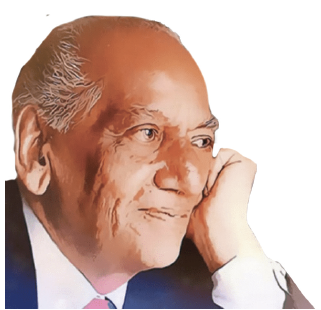Collective action hinges upon mass engagement of people while evoking emotions which bind them together for a particular cause, an ideology or against roots of oppression and suffering.
Voices of dissent counter dogmatic interventions be it by authorities in power or societal demagogues. It is then when artistic and cultural expression comes to the fore– rigid beliefs and authoritative injunctions
fought with verses humanising people who are otherwise rendered as mere numbers, objects for self-appeasement.
Poetry is one such cultural expression that speaks to the human soul. While mesmerising people, it may reveal a harsh reality. The combination of rhythm, lyrical propensity and a powerful message can be a lethal weapon when introduced to the masses, particularly when it resonates with people’s dispositions. It tends to capture people’s pulse.
Amongst many, two compelling poetic pieces echoed the sentiments of the ordinary citizens of Pakistan. These words revealed the dictatorial dispensation and cult of personality enveloping the social
landscape at the time of their inception. These poems are more than a general textbook account of the regimes. The serve as a counter-narrative that has endured the test of time.
Hum Dekheinge (We Will Witness) and Zulmat ko Zia (Darkness Called Light) behoved the quintessential anti-tyranny voice against Martial Law of General Ziaul Haq, penned in the late 70s, but chanted in demonstrations for a decade until the end of his rule. Artistic brilliance aside – but of course not any less admirable – the revelatory component of the verses and how they acutely depicted the irrational diktats of the then regime and its ‘master,’ made these poems the heart of the movement against martial law rule.
Faiz’s tour de force offers hope for laypersons forced into submission, calling out authorities with conviction while promising a new dawn amidst the political ruckus. Hope can be dangerous for tyranny.
Tyranny has the power to make people believe that it is all-encompassing and everlasting. And when you hear and read echoes of hope amidst the orchestrated wretchedness, then a movement emerges with newfound zest. This zest brings revolutions to life. It is this hope that rejuvenates the drained and persecuted bodies and reminds them of their role in the broader landscape of speaking against unchecked power. Hum Dekheinge did that for the resistance movement of the time. The following words sung by the inimitable Iqbal Bano in a black saree – saree being banned by Zia’s regime for allegedly crossing moral codes – are a striking reminder of the authoritarian rule but a promise of the metaphorical spring for those governed:
Hum bhi dekhenge, Hum bhi dekhenge
Jab zulm-o-sitam ke koh-e-karan
Rooyi ki tarah ud jayenge, hum dekhenge
Hum mehkumon ke paon tale,
Ye dharti dhar dhar dharkegi,
Aur ahl-e-hakam ke sar oopar,
Jab bijli kar kar karkegi
We, too, shall see. We also shall see.
When the mountains of oppression and cruelty.
Will float away like carded wool. We will see.
Underneath our feet – we the governed.
The ground will echo like a thumping heartbeat.
And the sky over the heads of the rulers.
Will echo with the sound of thunder.

Hum Dekheinge is an ode to liberty from the chains of oppression, and sentience. On the other hand, the people’s poet Habib Jalib had penned Zulmat ko Zia to shed light on the lies being disseminated by Ziaul Haq and his overzealous propaganda machinery that turned falsehood into truth. He wrote against the callous regime which represented the General as infallible, the almighty corrector of all ills but for Jalib, Zia was the human equivalent of darkness itself. The ecstatic public would clamour in unison when Habib Jalib stood to recite his poems at demonstrations, especially Zulmat ko Zia.
There was pressure from the state to have artists and literary figures portray Zia in a positive light. He protested it. Jalib didn’t only protest that notion but wrote this poem in response to the government choking all voices of dissent or criticism. Press freedom was a far cry. A few verses of Zulmat
ko Zia extol truth as the greatest force of resistance as also recollected underneath:
Haq baat pe koday aur zindaan,
Batil ke shikanje me hai ye jaan Insaan he ke sehme bethe he,
Khoon-khwar darinde he raksaan
Iss zulm-o-sitam ko lutf-o-karam
Iss dukh ko dawa kya likhna
Zulmat ko zia, sar sar ko saba,
Banday ko khuda kya likhna
For the truth you are flogged and imprisoned,
Our lives are trapped in the grip of lies,
As citizens crouch down in terror,
The bloodthirsty monsters roam.
This cruelty masked as kindness,
This disease disparages a cure I cannot
write,
This pitch black night summons as the dawn,
These toxic fumes request a breeze
And a human summarising God, that I cannot inscribe.
Revolutionary giants of Urdu poetry in Pakistan, Faiz Ahmed Faiz and Habib Jalib have held the mettle of literary resistance with their powerful poems. Even today, the relevance of their rhythmic expression cannot be wished away. But there is a price for speaking the truth, for profound art, and daring to offer hope amidst tyranny. Faiz and Jalib paid that price. They were imprisoned and in Faiz’s case, forced into exile many a times. Their words chalked out.
Today, those very words echo out of the depths of history, staunchly embedded in the scriptures of our national glory. This is the strength of poetry.
Resistance echoes.
The writer is our Editor-in-Chief.



